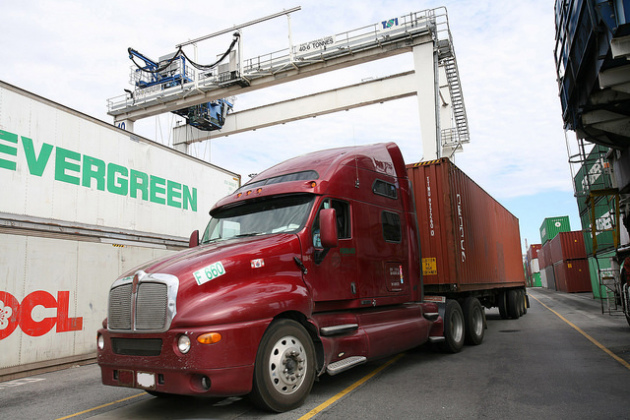Port of Vancouver keeps supply chain moving in fight against Covid-19
VANCOUVER, B.C. – It was a near record year for cargo and passenger movement at the Port of Vancouver in 2019, and so far, Covid-19 has had an impact on 2020.
With 144 metric tons of cargo moving through the port last year – down 2% from the 2018 record of 147 tons – the port has seen some declines of late due to the world’s reaction to the coronavirus.
“We have experienced some lowered volumes, but expect these volumes to return as the workforce in Asia is now starting to return to more normal operations,” the Port of Vancouver told Today’s Trucking.
Despite some measures to minimize administrative processes to protect staff, the port remains open and is keeping the supply chain moving, maintaining 24-hour control and access to facilitate Canada’s trade and keep cargo flowing to communities in need of essential supplies.
“The trucking community is critical to the supply chain and to moving goods through the Port of Vancouver to Canadians and businesses,” the port stated. “We are continuing to monitor the global response to Covid-19 and will continue to take direction from Transport Canada and health authorities.”

Last year’s numbers at the port were driven by new cargo records in potash, grain, and containers. Sectors that saw declines included foreign petroleum products and domestic forest products.
“We saw strong trade growth through the port during the first half of 2019 that reached record levels, and a softening in the back half due to various issues affecting global markets,” said Robin Silvester, president and CEO of the Vancouver Fraser Port Authority (VFPA). “Despite these challenges, and during one of the most uncertain years for global trade, we still saw the second highest volume of cargo through the Port of Vancouver to date. This speaks strongly to the diverse number of trading partners and range of cargo handled by terminals at the Port of Vancouver, which ensures the entire port remains resilient, regardless of variations in any one sector or commodity.”
Grain saw a new record of 28.3 million metric tons for both containerized and bulk cargo, and wheat was up 16% overall from last year.
Canola, however, was down 19%, largely due to a 62% decrease in exports to China.
Petroleum products fell 42% compared to 2018, as year-over-year fluctuations are common and largely affected by U.S. refineries buying crude from U.S. sources.
Container trade through the port is driven by Canadian demand for imports, and availability of empty containers has been essential for Canadian businesses wanting to ship good to international markets.
“As Canada’s international trade continues to grow, it is our job as a Canada Port Authority, along with all those who make up the Port of Vancouver, to make sure the port is ready to handle the increasing trade through Canada’s west coast,” said Silvester. “Against a backdrop of global change and disruption, the Port of Vancouver presents a great opportunity for our region and local communities to access jobs and internationally-sourced goods, and for businesses here to access foreign markets.”
The VFPA has activated an internal Covid-19 task force to monitor the situation daily, which will determine appropriate policies and processes to reduce risks.
The VFPA has also temporarily eliminated the need for truck drivers to touch keypads to gain access to gates. Drivers must still swipe their port pass to access the property.
Have your say
This is a moderated forum. Comments will no longer be published unless they are accompanied by a first and last name and a verifiable email address. (Today's Trucking will not publish or share the email address.) Profane language and content deemed to be libelous, racist, or threatening in nature will not be published under any circumstances.